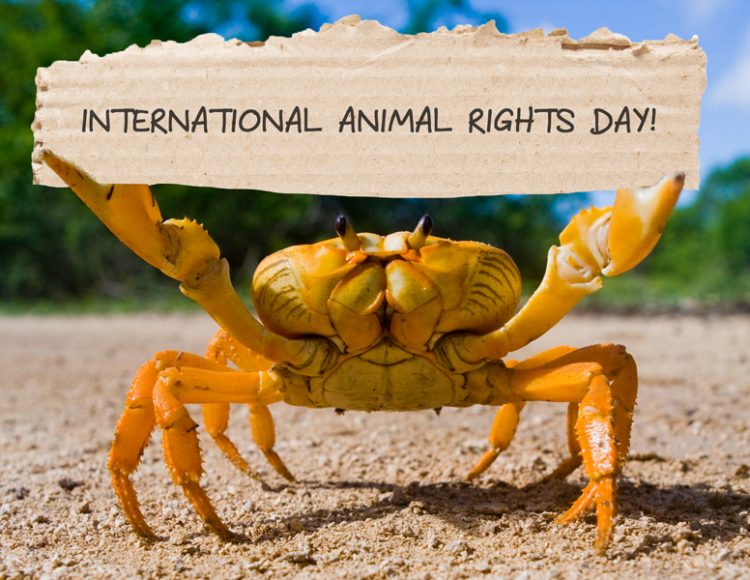Richard McIlwain, Chief Executive at the Vegetarian Society, reflects on animal rights.
Are animal’s sentient? Do they think? Feel? Display emotions? Should animals have rights? And if so, should they be enshrined in law?
It’s an old debate, but one that is ever more pressing. We live in a world where disastrous climate change, deforestation and biodiversity loss on land and sea are all being intensified by a continuing demand for meat and fish, and imposing on our own human quality of life and rights to life, particularly in the southern hemisphere.
Perhaps, if we considered that animals do indeed have rights to the same quality of life we wish to enjoy ourselves, then not only would they benefit, but we would reflect on and address the dramatic and wholly negative impacts we are wreaking on the planet.
Why am I raising this today?
Well, Friday 10 December, is ‘International Animal Rights Day’. Established in 1998, the day was purposely chosen to coincide with Human Rights Day which commemorates the day the United Nations adopted the Universal Declaration of Human Rights in 1948. Indeed, 30 years later, in 1978, a ‘Universal Declaration of Animal Rights’ was set out and announced at the United Nation’s Educational, Scientific and Cultural Organisation (UNESCO) headquarters in Paris, declaring that all animals have rights to existence and shall not be ill-treated or subject to cruelty. However, with no contractual or legal standing, and limited backing, it achieved very little.
Since then, various attempts have been made to reinvigorate the declaration, taking into account a range of cultural, religious and economic issues. Sadly, it would appear these have had only limited success. Other animal rights declarations do exist, championed by NGOs, suggesting animals should in no way be exploited for food, work or amusement.
However, nothing has (yet) gained the level of traction or impact of the UN’s Declaration on Human Rights.
Progress, it seems, in enshrining genuine rights for animals, particularly used in agriculture, remains glacial. However, there is hope. The UK government’s Animal Welfare (Sentience) Bill will for the first time ever recognise animals as sentient beings in domestic law. Up until recently the scope was restricted to vertebrates, however, the bill was recently extended to include crabs, squid and octopuses, recognising that, while they don’t possess a backbone, they do possess a complex central nervous system, one of the key hallmarks of ‘sentience’.
Of course, the government was also keen to make clear that this extension would not affect any existing practices such as fishing, shellfish harvesting or preparation for eating. So, carry on dropping those live lobsters and crabs into boiling water, and maybe at some point in the future a committee will decide it’s perhaps a little cruel.
Clearly, it’s not just the crabs and lobsters without a backbone…
However, I remain as ever an optimist and believe future generations will look back and wonder why we ever treated animals so inhumanely.

